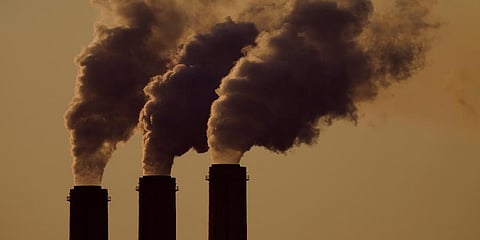

NEW DELHI: Despite the ongoing shift toward cleaner energy, fossil fuels will continue to play a major role in meeting global energy needs, accounting for 40 to 60 per cent of global energy supply by 2050 due to the slower-than-expected adoption of electric vehicles (EVs), according to McKinsey report.
The report further stated that gas will continue to be an important energy source, providing stability to power grids as renewables.
Though fossil fuel consumption is expected to dip between 2025 and 2035, investments in this sector are likely to continue in order to ensure energy reliability during the global transition to cleaner sources.
Global energy demand is projected to grow significantly, increasing by as much as 18 per cent by 2050, with emerging economies playing a key role in driving this growth. Factors such as population expansion, rising GDP, and the relocation of industries to countries like those in the ASEAN region, India, and the Middle East are boosting energy consumption in these regions.
However, despite this surge, low-carbon energy sources, such as solar and wind power, are expected to account for 65 to 80 per cent of global power generation by 2050. While solar energy, in particular, is projected to grow rapidly due to its low cost, other technologies like hydrogen and carbon capture face hurdles.
Renewables are projected to make up a significant portion of the global energy mix by 2050
The global energy transition depends heavily on the availability of raw materials like lithium, nickel, and cobalt, which are essential for low-carbon technologies.
Renewables are projected to make up a significant portion of the global energy mix by 2050, growing from 32 per cent today to as much as 80 per cent. However, due to their intermittent nature, renewables require firming capacity from gas or other stable energy sources to ensure a reliable power supply.
The expansion of renewable energy will also require major investments in infrastructure, particularly transmission and distribution networks, to handle the increased capacity.